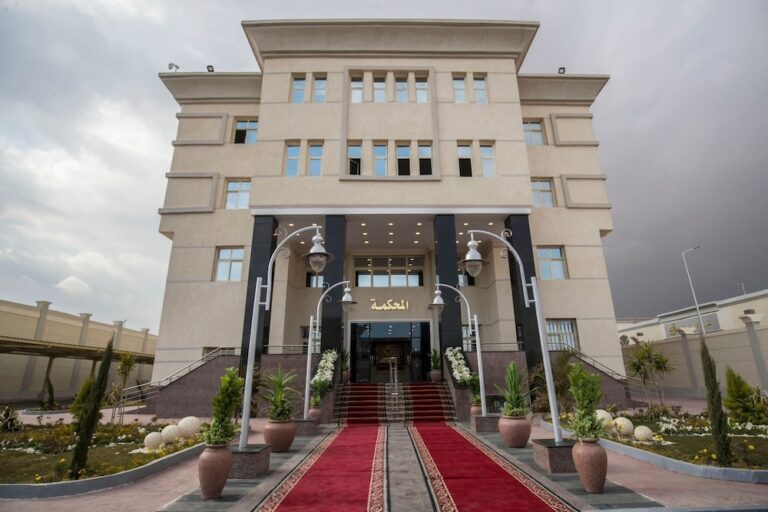(HRW/IFEX) – The following is a Human Rights Watch press release: Egypt: Activist Begins Hunger Strike as Detention is Extended (New York, August 1, 2003) — State security prosecutors in Egypt who extended the detention of antiwar activist Ashraf Ibrahim should instead release him immediately, Human Rights Watch said today. Ibrahim, who launched a hunger […]
(HRW/IFEX) – The following is a Human Rights Watch press release:
Egypt: Activist Begins Hunger Strike as Detention is Extended
(New York, August 1, 2003) — State security prosecutors in Egypt who extended the detention of antiwar activist Ashraf Ibrahim should instead release him immediately, Human Rights Watch said today. Ibrahim, who launched a hunger strike in protest of the 15-day extension issued on July 30, has been held without charge or trial for three months.
“Egypt’s persecution of Ashraf Ibrahim symbolizes the government’s determination to punish legitimate dissent,” said Scott Long, researcher with the Middle East and North Africa division of Human Rights Watch. “His health is now endangered as his freedom is denied. We call on the authorities to free him immediately.”
Ibrahim, an engineer by profession, was also suspended from his job with a private company on July 28. He is an activist with the Popular Committee for Solidarity With the Palestinian Uprising. He is one of hundreds of people arrested after participating in Cairo demonstrations against the U.S.-led war in Iraq this spring. Sixty-nine people still face criminal charges in connection with the demonstrations. But only Ibrahim is still detained.
Prosecutors have not referred his case to trial. They have told Ibrahim and his attorneys that he is under investigation for downloading information on human rights from the Internet, as well as information from the website of the al-Jazeera news service.
Ibrahim turned himself over to State Security Investigations (SSI) on April 19, 2003, two days after agents raided his home and confiscated his computer, video camera, and other electronic equipment. Prosecutors have renewed his detention at regular fifteen-day intervals ever since. He is being held at Mahkum Tora prison, near Cairo, and reportedly shares a cell with approximately forty criminal convicts, in violation of international standards requiring pre-trial detainees to be separated from convicted prisoners.
Ibrahim has told his attorneys that his space in the cell is limited to “one and a half floor tiles.”
“I am ready to die struggling for the principles of freedom of opinion and expression and for my daughter’s right to enjoy her simplest rights in a stable family and finally to see her Dad who has been ‘traveling’ since 100 days,” Ibrahim said in a statement released through his attorneys on July 21. He vowed that, if he did not receive a referral to court or a release order on July 30, “I shall start an open hunger strike on the same day.”
At the very least, Long said, “The Egyptian authorities are responsible for Ashraf Ibrahim’s life and well-being, and should monitor the conditions of his hunger strike closely while he is in detention. However, holding him in indefinite detention without charges or a trial is unjustifiable, and unjust. Ashraf Ibrahim should be freed.”


